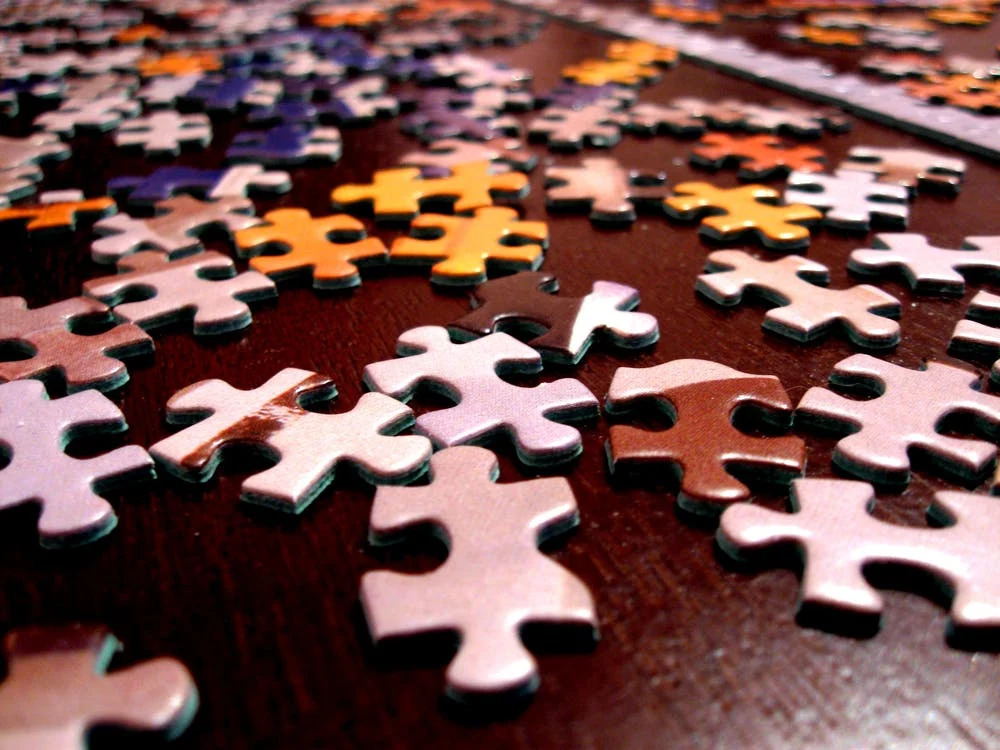Jigsaw puzzles have been around for many years as a joyful activity for children; however, they are an equally popular passing time activity for adults as well. Whether you are staying home due to the pandemic or simply enjoy some downtime, jigsaw puzzles for adults are the perfect way to unplug and detox from the increased screen time everybody has been experiencing lately. They are a fun and inexpensive way for you and your family to immerse yourselves in hundreds of puzzle pieces, trying to fit them together to reveal the final picture.
While jigsaw puzzles are infamous as a hobby or a fun time activity, they actually offer several other benefits that you may not be aware of. If you are curious to learn more, let’s talk about the top six benefits of solving jigsaw puzzles for adults.
They offer a meditative experience
At any point of the day, our minds are continuously processing several different thoughts and emotions simultaneously, which can be quite stressful and mentally exhausting. When you sit down to solve a good old jigsaw puzzle, you can put all those extra thoughts to one side and focus on the task at hand: find pieces that fit. Like meditation, because the mind is focused, it allows it to destress and causes the puzzler to feel calm and relaxed. This is why if you need to wash away your worries for some time, try putting together a puzzle.
They strengthen cognition
As you make your way through a jigsaw puzzle, you make use of creativity and logic which means that both sides of your brain are activated throughout. This makes for an excellent workout for the brain, which helps to sharpen cognitive abilities and to harness your overall brainpower. Flexing your brain’s muscles also helps to maintain cognitive health in the long run as well. Research has found a link between solving puzzles and delaying the onset of Alzheimer’s and Dementia in adults. For those who suffer from these diseases, puzzling can help offer the right stimulation that their brains require to soothe the symptoms.
They enhance problem-solving skills
When solving a puzzle, you experience yourself taking different approaches and thinking outside the box to solve the puzzle using a trial and error method. You also change your perception as you try to visualize the puzzle at hand from different angles. If one method fails, you prepare yourself for another. These are skills that get sharpened over time and can be rightfully applied to real-life situations. Therefore solving puzzles helps enhance your problem-solving abilities by making you adaptive and good at critical thinking.
They help to improve memory
Jigsaw puzzles are beneficial in improving short-term memory because of the skills needed to solve them. As you sit in front of the different pieces, you require recollection of colors, shapes, and sizes in order to visualize the bigger picture. You need to remember which piece goes where to put the whole thing together. This activity reinforces neural connections and generates new pathways that enhance thought processes and mental speed. All of which is needed to improve short-term memory. So if you find yourself struggling to remember where you left your car keys, it might be a great idea to take up puzzling as a hobby as a new way to improve memory.
They increase effectiveness at work
Believe it not, solving jigsaw puzzles can help you become very successful at work as well. For starters, they are a great way to enhance productivity. To solve a puzzle correctly, you need to be able to concentrate on the small pieces and pay attention to the finer details. Making your way through the puzzle will help train not only your brain but also your eyes on precision. This is particularly helpful at work where you’re required to stay vigilant and detail-oriented. Because they also help to increase concentration and focus, employees often find that taking a break to solve a puzzle helps to reset their brain and focus on the task at hand. This is why many companies place puzzles in recreational rooms at work. Not only do they help increase productivity, but they are a great way to socialize and get to know the people you work with.
They improve motor skills and dexterity
Solving puzzles is a great way to improve your fine motor skills, such as dexterity. This is particularly helpful for children but is equally beneficial for adults as well. You use your hands and utilize the muscles in your fingers to work with tiny pieces. Putting together intricate pieces and paying attention to the fine lines also helps to train your eyes as well. In fact, research from Princeton University confirms the fact that they help to improve dexterity. This is why puzzles are often recommended to patients with diminished dexterity in diseases like Alzheimer’s. They can be a helpful means of therapy depending on the extent of a patient’s condition.
Final thoughts
What has traditionally been viewed as a hobby clearly has many more benefits associated with it. From sharpening your brain to boosting your mood, a puzzle can do it all. After going through these surprising benefits, are you ready to start your very own jigsaw puzzle? You will not only have a relaxing time away from your cell-phones but will find the experience educational as well.


